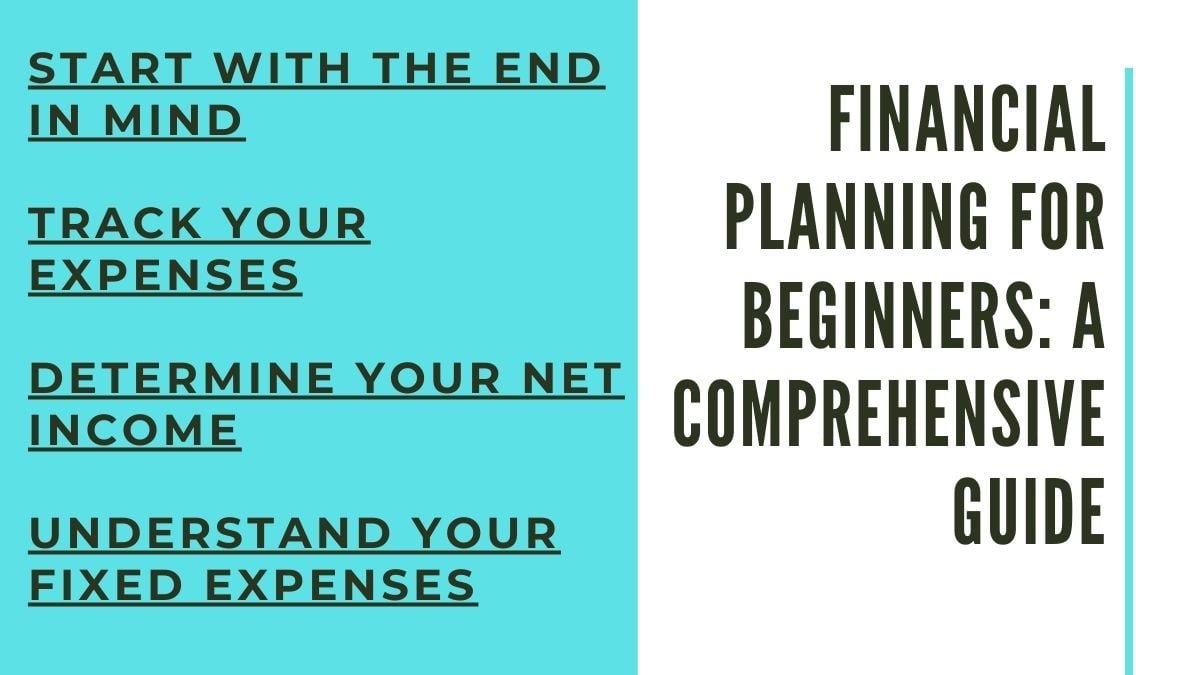Last updated on July 21st, 2023 at 07:36 am
Financial Planning for Beginners: Are you looking to establish a solid financial plan but feel overwhelmed by the abundance of financial advice? No need to fret; you have plenty of company. Many newcomers to financial planning find themselves in a similar situation.
Table of Contents
However, taking control of your finances can be manageable. It can be an empowering and rewarding journey.
This comprehensive guide will walk you through the essential steps to kickstart your financial planning journey and help you gain confidence in managing your money effectively.
1. Start with the end in mind.
The first step in Financial Planning for Beginners is to envision the life you want to create for yourself before diving into the details of financial planning.
Often, we need to reflect on our long-term goals and aspirations to catch up in the daily grind.
By understanding your values and envisioning your desired lifestyle, you can align your financial decisions with your larger goals and make more intentional choices.
This step sets the foundation for creating a financial plan tailored to your aspirations and needs.
2. Track your expenses must in Financial Planning for Beginners.
Understanding how you spend your money is a crucial element of financial planning.
By keeping track of your daily, weekly, and monthly expenses, you gain valuable insights into your spending patterns and discover areas where you can make necessary adjustments.
While cash transactions can be challenging to track, debit or credit cards allow you to monitor and categorize your expenses easily.
This valuable information serves as the groundwork for creating a new financial plan.
3. Determine your net income.
The third step in Financial Planning for Beginners is determining your net income regardless of your age or stage in life; saving is a non-negotiable aspect of financial planning.
When assessing your monthly income and expenses, it’s crucial to consider your net income.
Net income pertains to the money that remains once you have allocated 15% of your gross income into different accounts, including taxable, tax-deferred, and tax-free accounts.
Automating and treating your savings as regular expenses ensures you consistently prioritize your long-term financial well-being.
4. Understand your fixed expenses.
To develop a well-rounded financial plan, current financial status, setting financial goals, and understanding risk tolerance must be considered.
These costs remain relatively stable month after month, such as rent, mortgage payments, utility bills, and loan repayments.
By identifying your fixed costs, you can develop a budget that accommodates these expenses while allowing room for savings and discretionary spending.
5. Utilize multiple bank accounts in Financial Planning for Beginners.
Managing your finances becomes more convenient and organized using multiple bank accounts.
Rather than relying on a single account, consider setting up different checking accounts for specific categories.
This way, you can allocate your money to different areas of your budget, making tracking and managing your expenses more manageable.
Keeping your budget streamlined with fewer than five categories ensures clarity and transparency in your finances.
I hope you understand Financial Planning for Beginners; comment on your queries and get expert answers.







